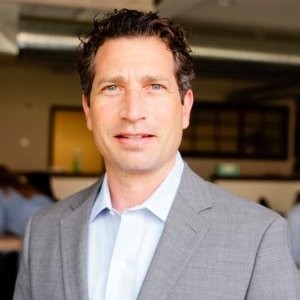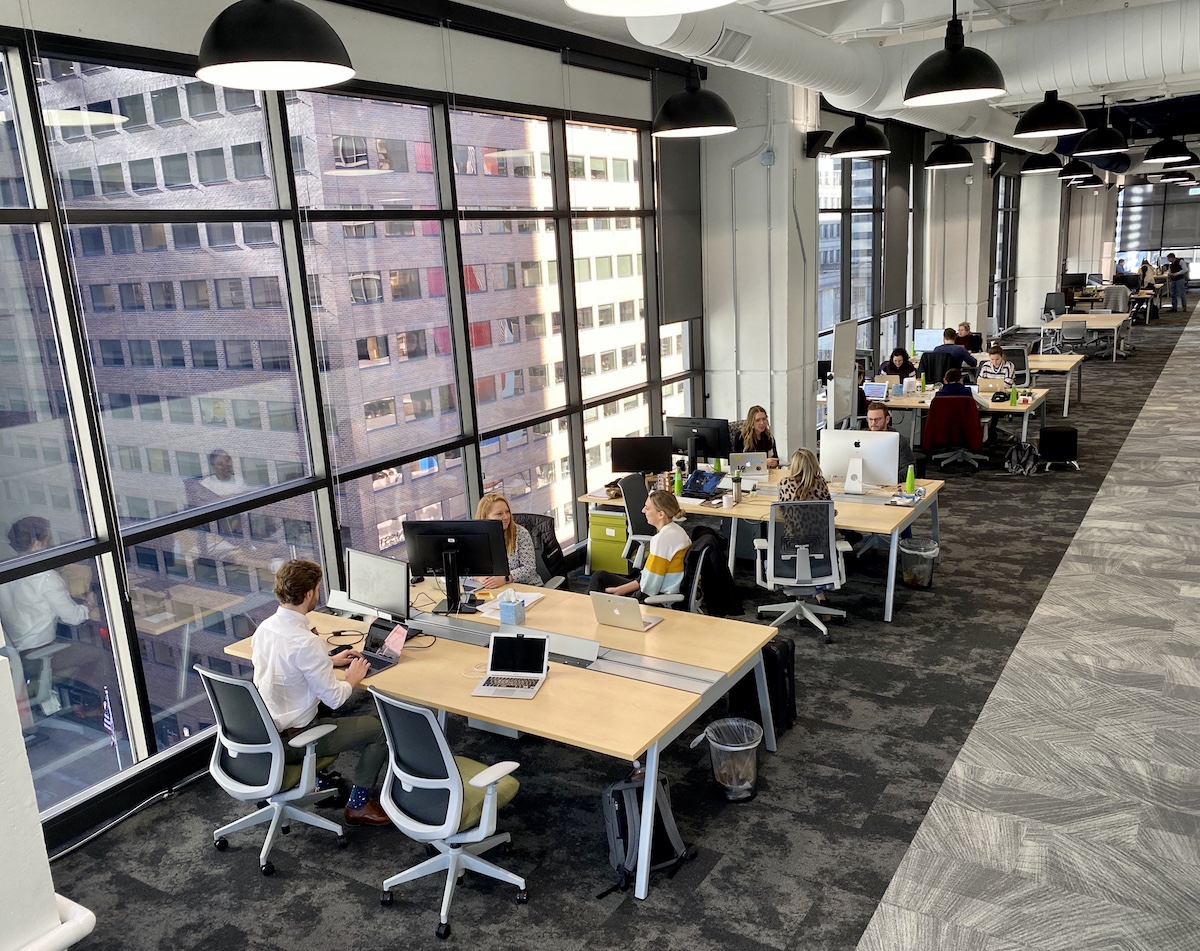Just before the pandemic hit last year, HealthVerity, maker of a privacy-minded data marketplace for the pharma and insurance industries, was doubling down on its brand-new Center City office space with plans for big growth.
Even a healthcare technologies company couldn’t have predicted what would follow: Hiring ramped up to keep with the increased demand for data amid a global pandemic. Since we checked in this time last year, the company’s headcount has doubled to about 150, and will continue to grow, thanks to a $100 million Series D closed last month.
The funding, led by Durable Capital Partners, will be used to accelerate the growth of its IPGE platform — that’s identity, privacy, governance and exchange. Existing investors Flare Capital Partners, Foresite Capital and Greycroft also participated. To date, the company has raised $143 million, including a $10 million Series B and $25 million Series C in 2017 and 2019, respectively. An IPO is on the table, but not in the near future, a company spokesperson said.
“As an entrepreneur, there’s a balance to raising. Ideally, you raise cash when you can, not when you need it — that’s usually the worst time,” cofounder and COO Andrew Goldberg told Technical.ly. “Healthcare IT venture valuations were looking really responsive and it’s giving us some more optionality to what we can do in the future. The timing was right, we saw good benchmarks, good comparables and took advantage of that.”
In July 2020, HealthVerity also acquired cloud-based drug rebate company Curisium. The companies together aim to “deliver a more complete and responsive infrastructure for high-governance, privacy-compliant data sharing between pharmaceutical manufacturers, pharmacy benefits managers and payers,” the company said.

The company’s been consistently hiring since last year (check out its couple dozen open roles) and plans to add more team members to help with the growth of its IPGE. Although it’s a data company, Goldberg said the key to this product is its software. The platform, introduced in May, makes centralized patient data management possible for clients with a unified infrastructure, he said. One use case: HealthVerity was chosen by the Department of Health and Human Services to deliver privacy-preserving record linkage as part of the COVID-19 vaccine rollout. The platform is being used to de-identify and connect individual patient records across jurisdictions and settings over time.
Big growth often brings big culture changes. So does a pandemic. Although its office space, which spans an entire floor of 1818 Market St., is still a draw for some employees, Goldberg said those in leadership realize the company is in a very different spot from when they opened its doors in December 2019. They’ve since hired about half their workforce in a remote environment, including some who don’t live in the region and will never come to the office on a regular basis.
They’ve also revamped how they hire, he said. Not just because of the remote environment, but because of an increased commitment to diversity, equity and inclusion work spurred by the racial justice movement last summer. The company now has an internal council to address its hiring practices, culture and referral program.
There are hundreds of lessons to be learned from living through and growing a company through the last year and a half, of course. But Goldberg said the biggest thing he’s noted is that he needs to do more listening. In order to make a more safe, comfortable and equitable workplace, the COO said he’s keeping his ear to the ground and having more people involved in making decisions.
“And not just people who look like me, but people who have a say in what matters,” he said.
He sees this playing into decisions around remote vs. hybrid work, how the company culture will adapt as it continues to grow and in creating policies that support the company’s employees in and out of work.
“I’ve had to listen to what employees and their families are going through this year, what clients want from us to evolve, how we build our profits from investors,” Goldberg said. “I think that’s the best decision I made during COVID — listening more and adopting.”







